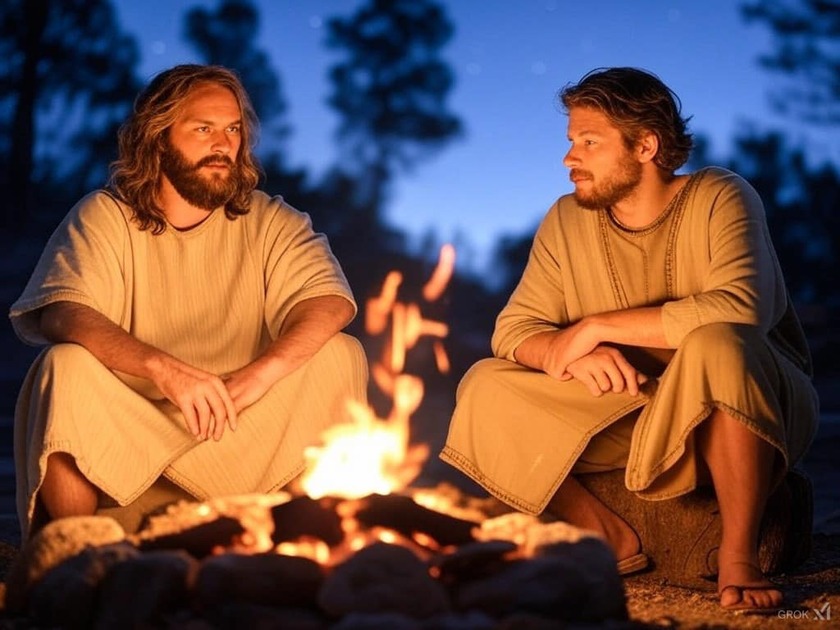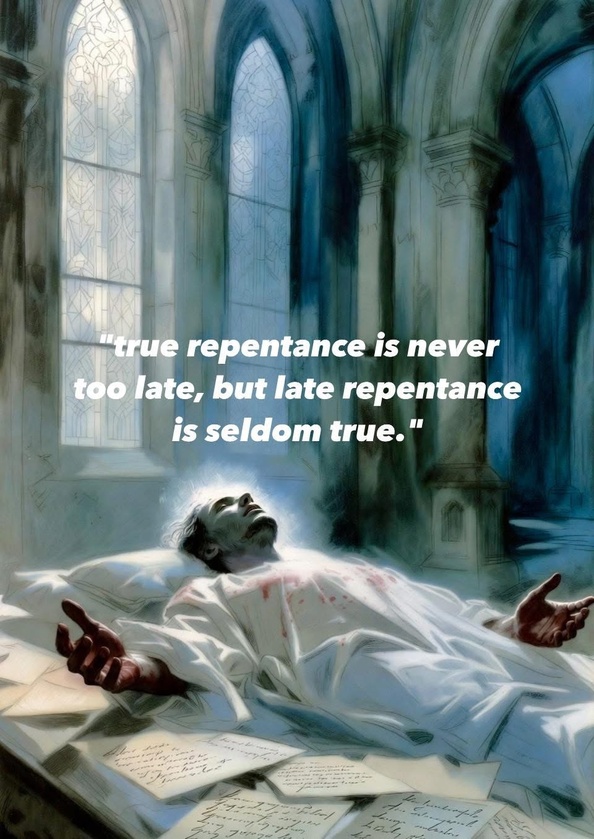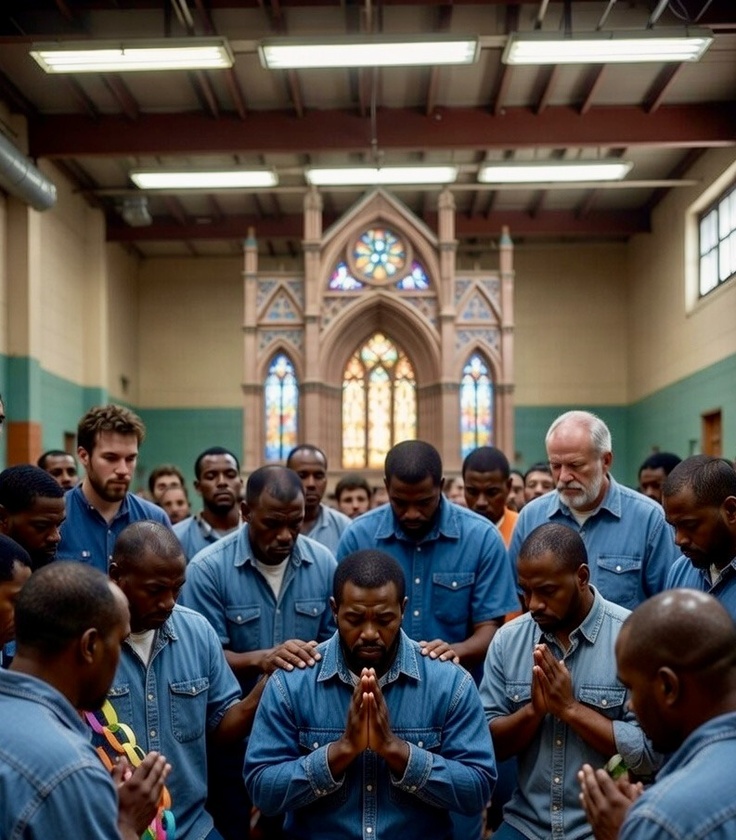Mark 15:2
And Pilate asked him, "Are you the King of the Jews?"
And he [Jesus] answered him, "You have said so."
This was a political prosecution brought on by an unforgiving people. The Sanhedrin council with the Elders and Scribes were determined to charge Jesus and have the Roman authorities investigate and ultimately execute him by their Roman laws. Jesus is questioned as a pretender to the throne of the king, and that's an unforgivable crime.
Throughout this whole process Jesus remains silent fulfilling the role of the sacrificial Messianic lamb foretold by the prophet Isaiah.
Isaiah 53:7
He was oppressed, and he was afflicted, yet he opened not his mouth; like a lamb that is led to the slaughter, and like a sheep that before its shearers is silent, so he opened not his mouth.
He did have a few things to say however.
Mark 15:3
"The chief priests accused him of many things."
And in fact, Jesus did say some very important things. Things that even today you'll find ignorant people claim he never said. Here's one in particular that gets around.
"Jesus never said he was God"
Well...did he say those exact words?
And if he didn't how critical is that?
Let's look at what he did say.
Mark 14:62
Again, the high priest asked him, "Are you the Messiah, the Son of the Blessed One?"
"I am," said Jesus. "And you will see the Son of Man sitting at the right hand of the Mighty One and coming on the clouds of heaven."
Now...people will nitpick on these things. But I think it's very clear who Jesus believes he is. If nothing else he's a radical. And because he's a radical you have to do something with that. You can't leave it alone. You can't ignore him. You either believe or you don't believe him. If you don't receive him, then you've rejected him. And every one of you must determine what you're going to do with the information that you've been given. Believe or don't believe. And the ironic thing is, we are left to be his judge and jury. We determine his fate but in doing so we are actually determining our own. Whether or not we decide to believe his claim to divinity means nothing as far as he's concerned. But this decision of ours is of eternal significance in regard to our own position.
During his trial and persecution, the crowds were given a choice on how they would respond.
Mark 15:6-8
"Now it was the custom at the festival to release a prisoner whom the people requested. A man called Barabbas was in prison with the insurrectionists who had committed murder in the uprising. The crowd came up and asked Pilate to do for them what he usually did."
It seems to me that these political persecutions are particularly egregious. They truly are an affront to justice. There is nothing good in any of it. Justice is never done in these kinds of political juries. Crimes are not brought to justice. Moreover, there are multitudes of crimes being committed throughout the entire process.
I can say that I have very little sympathy for these people. But I'm biased because I've lived through being falsely accused in a court of law. And I can tell you, when you're in it, the so called "justice" system is cruel and very evil. And it is that way because the people are that way. The people who operate in that system every day are that way. Something happens to those people something changes in them that makes them evil. And in the case of Jesus, the crowds were probably not even there for him. These people in the crowd were there for Barabbas and they were insurrectionists. They were the ones who are truly guilty at least in regard to crimes against the state.
So, let's stop here and juxtapose these people to what it means to be a Christian and to be that kind of person. At least the kind of person that should call himself a Christian.
I can begin by saying it's very simple being a Christian. People talk about this all the time, "what does it mean to be a Christian". But the truth of the matter is, it's very simple, being a Christian means being a person who forgives. Which is exactly what wasn't happening in the case of Jesus during his trial and persecution.
When I went through my corrupt, false accusations and trial, I was found not guilty, and I guess you could say redeemed. But not fully, some people still believed I was guilty afterwords, because they believed what they wanted to believe. I can give testimony as to the fact that I believe it was God who accomplished this redemption for me. It certainly wasn't my court appointed lawyer. And at the end of my trial, the judge wanted me to file charges against the police department and everybody else involved in this fiasco. I didn't have that in my heart. I wanted to go away from this situation and so I sided with forgiveness. And I can say that every time I've been put into any kind of situation like this, I've always sided with forgiveness.
When we pray the Lord's prayer, when I pray the Lord's prayer, I should say, I take it very seriously when I say the words, "and forgive me my sins, as I forgive those who have signed against me". My sins are forever before me. I'm more concerned about making peace with myself then forcing others to my side.
I think back to the Old Testament and Joseph and how he forgave his brothers for selling him into slavery. He forgave them everything and treated them with kindness and love. And even he took care of them and their families and all the rest of Isreal. And this is the kind of heart and mind that God finds pleasing.
Forgiveness is the highest of all human virtues. Forgiveness is an expression of our inner strength. Forgiveness is clearly an important aspect of our moral lives, and yet it has an elective aspect to it. It is a choice that we must make. It is not a reflex of the human condition. It is something that we absolutely never really want to do easily. Forgiveness requires humility because it necessitates setting aside our pride.
The apostle Peter struggled with this, and he leans in on Jesus for help understanding forgiveness. If you recall he asked Jesus how often he should forgive his brother. And Jesus answered seventy times seven times. Later Peter finds out that forgiveness goes even deeper than that. While Jesus was undergoing trial, Peter was nervously waiting in the courtyard of the high priest. He denied knowing Jesus. Later he heard about what Jesus said from his cross, "Father, forgive them..."
After Jesus is resurrected from the grave, he appears to the disciples, and he fixes them breakfast around a campfire. After they had finished eating, Jesus asked Peter three times, "Peter, do you love me?"
Jesus asked Peter these three questions while they sat warming themselves at the campfire. I find it interesting, because it was around a campfire that Peter denied Jesus three times. Just as Peter denied Jesus three times, the Lord asked Peter three times if he loved Him. Jesus didn't demand retribution three times for each of Peter's denials. This questioning was a part of Peter’s restoration and ultimately his recommissioning into Christ.
That's what forgiveness accomplishes. It restores and allows for reconciliation. But more than that it opens up new possibilities for understanding and fellowship. It's a godly thing. Forgiveness is like God.
An unforgiving person is really an evil person. And that makes sense because forgiveness is a godly thing.
What do I mean an unforgiving person is an evil person? I mean to say that there is a plan to do harm that is built into the unforgiving person's actions. And those plans are inspired by evil.
There's an old adage, a parable of sorts that explains this.
A young disciple, wise in his own eyes, devised a plan to trick his old teacher into a wrong answer.
He would catch a bird and ask, "What’s in my hand?"
When the old man said, "A bird."
Then he would ask, "Is it dead or alive?"
If he said, "dead," the boy would open his hands and let the bird fly away.
If the old man said, "alive," he would crush it in his hands and let it fall to ground dead.
So he did as he planned. He walked up to the wise old teacher and asked, "Old man, what is it that I have in my hands?"
The wise old teacher said, "You have a bird, my son."
The boy then asked, "Old man, tell me: Is the bird alive or is it dead?"
The wise teacher looked at the boy thoughtfully and said, "Son, the answer lies in your hands."
We all have the ability to choose right or wrong. Good or evil. God or the Devil. Life and death. Blessings and curses. Forgiveness and understanding, or unforgiveness and angst. Peacemakers choose forgiveness, and God blesses them.
What usually holds back forgiveness is someone holds onto a selfish need. A need to be the primary. A need to create boundaries. A need to be the focus of the connection. To be the core. And this need overarches the desire to be in communion. So, when a factor in the connection is not focused on the core, but goes its own way, the core cuts it off from the communion. The radical rouge factor has offended the core and therefore it should not be allowed to participate in that communion until it has satisfied some sort of moral obligation. This is how unforgiveness operates. It's selfish. And it breeds resentment and cruelty.
Unforgiveness killed Jesus. Unforgiving hearts did that.
The crowds shouting, "crucify him!" couldn't forgive Jesus for claiming to be The Son of God. The Sanhedrin couldn't forgive Jesus for exposing their hypocrisy. Judas couldn't forgive Jesus for not adhering to his ideal for their ministry mission. The people who followed Jesus couldn't forgive him for not being the warrior king they wanted. Every one of these people were inspired to evil by their own selfish desires.
That's what unforgiveness is, selfish people doing selfish things for selfish reasons.
What did Jesus say about that?
"Temptations to sin are sure to come, but woe to the one through whom they come...If your brother sins, rebuke him, and if he repents, forgive him, and if he sins against you seven times in the day, and turns to you seven times, saying, ‘I repent,’ you must forgive him."
"If you forgive people their sins, your Father in heaven will forgive your sins also. If you do not forgive people their sins, your Father will not forgive your sins."
When we refuse to forgive and make peace with others, we are doomed to an unrest of our own choosing. And worse than that, we doom everyone around us to that same fate.
Shalom



















